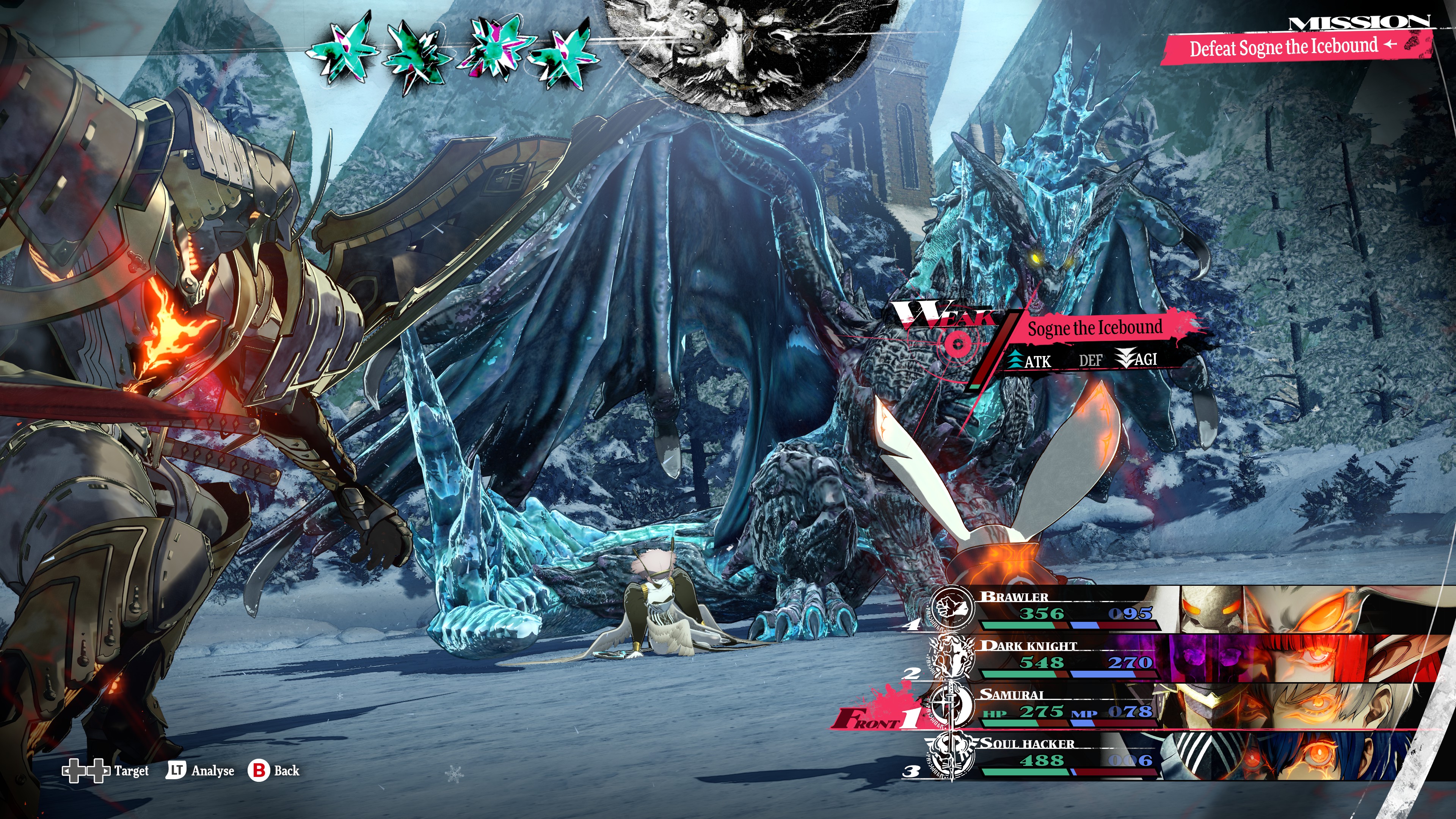Today's RPG fans are 'very sensitive to feeling like they wasted time' when they die, says Metaphor: ReFantazio battle planner—but Atlus still made combat hard anyway
Tough battles are key to Atlus RPGs, but Metaphor offers multiple ways to avoid frustration after dying.

According to HowLongToBeat, Atlus's 2024 RPG Metaphor: ReFantazio is a mere 65-and-a-half hours long—if you stick to the critical path. Go for the mad completionist playthrough and you're looking at 105 hours of turn-based battles, cutscenes and life simmy chats with your party members, which is objectively a lot of game.
But imagine how much higher that average completion time would be if Metaphor: ReFantazio didn't include generous autosaving, an option to repeat battles immediately, and other features expressly designed to avoid wasting players' time. According to lead battle planner Kenichi Goto, one of the core principles of Metaphor's design was appealing to today's RPG players in Japan, who are "very sensitive to feeling like they wasted time" when they die in a game.
"When they reach the 'game over' screen, they feel like their efforts went to waste," Goto said in a panel at the Game Developers Conference in San Francisco last week. "We wanted Metaphor to feel like a modern RPG, which means players should feel like they're on the edge of reaching game over, [but if] they do, it will be easy for them to go back in and give it another try."
Goto explained that Atlus views RPGs as "resource management games," with the abstract takeaway being that you're trying to reach your goal before you use up all your resources (your hit points, mana, and consumable items). One of the primary ways you gain resources in Atlus's games is through the life sim elements—leveling up your relationships with party members to unlock new skills and so on. As a result, they want combat to be difficult enough that players feel like they need to engage with that portion of the game to earn the resources they'll use in battle.
"It's important to keep gamers thinking that they're on the edge of reaching game over to keep that sense of excitement and danger," said Goto, "while also ensuring a feeling of safety that even if they do, time lost will be kept to a minimum. Just because players have been forgiving in the past, I think it goes without saying that they may not be as forgiving in this modern day."
Metaphor's primary safety net came in the form of the "rewind" system, which lets players reverse their actions if a battle's going sideways and try it again from the top as many times as they choose.
"You could even say that this was cheating the game in a way, but we decided that it was still worth it," Goto said. "Even if you could try it again and again until you got the perfect result, it would take so long that very few people would do it, which balances itself out.
The biggest gaming news, reviews and hardware deals
Keep up to date with the most important stories and the best deals, as picked by the PC Gamer team.
"And there's actually an odd sense of satisfaction in this—almost like you got away with something. It helps players deal with feelings of unfairness if something unexpected happens, and they sometimes get to have fun 'cheating' the game a little bit. It ended up being a really fun addition to the game without spoiling it."
Metaphor's devs also added frequent autosave points to ensure players could retry quickly after a game over and adjust their party composition to better suit a battle, encouraging experimentation. They also added class recommendations for quests and an online system that shows players what team makeup others have used in certain dungeons, both aiming to reassure modern players they weren't wasting their time.
Best cozy games: Relaxed gaming
Best anime games: Animation-inspired
Best JRPGs: Classics and beyond
Best cyberpunk games: Techno futures
Best gacha games: Freemium fanatics

Wes has been covering games and hardware for more than 10 years, first at tech sites like The Wirecutter and Tested before joining the PC Gamer team in 2014. Wes plays a little bit of everything, but he'll always jump at the chance to cover emulation and Japanese games.
When he's not obsessively optimizing and re-optimizing a tangle of conveyor belts in Satisfactory (it's really becoming a problem), he's probably playing a 20-year-old Final Fantasy or some opaque ASCII roguelike. With a focus on writing and editing features, he seeks out personal stories and in-depth histories from the corners of PC gaming and its niche communities. 50% pizza by volume (deep dish, to be specific).
You must confirm your public display name before commenting
Please logout and then login again, you will then be prompted to enter your display name.


